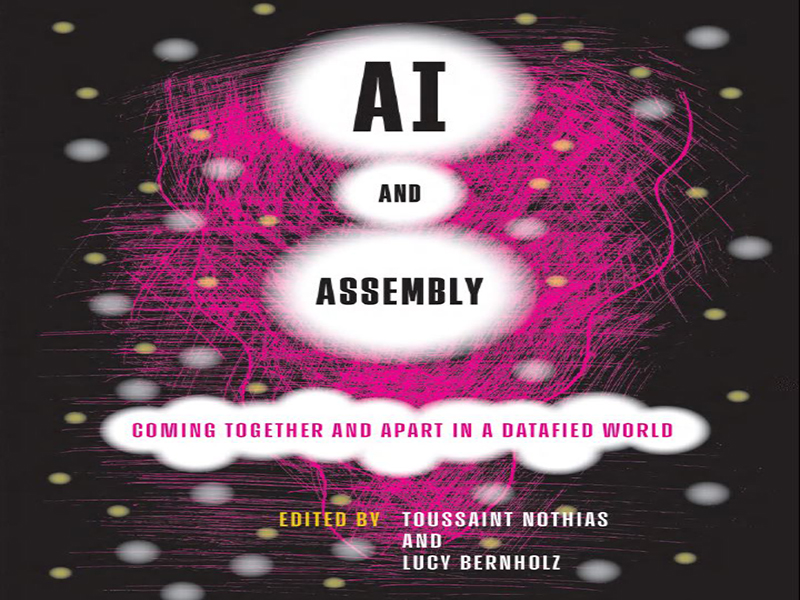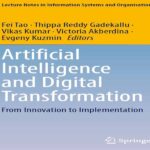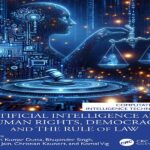- عنوان کتاب: AI and Assembly -Coming Together and Apart in a Datafied World
- نویسنده: Toussaint Nothias
- حوزه: تحلیل داده
- سال انتشار: 2025
- تعداد صفحه: 220
- زبان اصلی: انگلیسی
- نوع فایل: pdf
- حجم فایل: 1.86 مگابایت
هوش مصنوعی، نرمافزارهای پیشبینی و ابزارهای تصمیمگیری خودکار، به شیوهای مشابه آنچه همینگوی ورشکستگی را توصیف کرد، از آزمایشگاه به زندگی روزمره راه یافتهاند: «به تدریج، و سپس ناگهان». هوش مصنوعی که توسط ذخایر عظیم دادهها و ذخیرهسازی دیجیتال، سیستمهای محاسباتی قدرتمند و رقابت بین شرکتها و دولت-ملتها هدایت میشود، ظاهراً در همه جا حضور دارد. این فناوری در سیستمهای فیزیکی ما برای مدیریت انرژی و حمل و نقل تعبیه شده است؛ پلتفرمهای رسانههای اجتماعی و موتورهای جستجو را تقویت میکند؛ کارهای اداری بیشتری را پشتیبانی میکند و میتوان آن را عمیقاً در تحقیقات پزشکی؛ خدمات آموزشی؛ مراقبتهای بهداشتی؛ بیمه؛ جرمشناسی و سیستمهای قضایی؛ مدیریت رفاه اجتماعی؛ اجرای سیاستهای عمومی و سازمانی؛ خدمات مشتری؛ و کنترل روشنایی، امنیت و گرمایش خانه یا محل کار یافت. گسترش هوش مصنوعی، محققان و مدافعان پیشگیری از آسیب را برانگیخته است؛ مسلماً، به همان اندازه که پیادهسازیهای هوش مصنوعی وجود دارد، کانونهای نگرانی در مورد آن نیز وجود دارد. به عنوان مثال، نگرانیها در مورد خطرات وجودی هوش مصنوعی، برخی از متخصصان فناوری را بر آن داشته است که اصرار داشته باشند که فرآیند تحقیق باز باشد تا نوعی حکومتداری عمومی وجود داشته باشد. برخی دیگر بر نبردهای ژئوپلیتیکی برای کنترل توسعه و استفاده از هوش مصنوعی تأکید میکنند و آن را به عنوان یک مسئله امنیت ملی و رقابت مطرح میکنند. برخی دیگر نیز برای رفع تعصب از سیستمهای موجود یا دفاع از ممنوعیت کلی برخی سیستمها تلاش میکنند. همه این نگرانیها با موضوع اصلی این کتاب مرتبط هستند: توانایی و آزادی ما برای تجمع در جهانی که توسط هوش مصنوعی تسخیر شده است. آزادی تجمع یک حق اساسی بشر است. ما وقتی در یک اعتراض شرکت میکنیم، به یک راهپیمایی یا تجمع میپیوندیم، یک رویداد اجتماعی را سازماندهی میکنیم یا در یک جلسه عمومی شرکت میکنیم، تجمع میکنیم. چه عضوی از یک سازمان مذهبی، یک اتحادیه، یک انجمن اولیا و مربیان، یک جامعه داوطلب یا یک گروه محله باشید، مشارکت شما در این فعالیتها به معنای نوعی تجمع است. آزادی تجمع، بسیار شبیه به آزادی اندیشه و بیان، بنیادی است که جامعه مدنی و مشارکت دموکراتیک را تضمین و تشویق میکند. در این کتاب، ما از اصطلاح «تجمع» تا حد امکان به طور گسترده استفاده میکنیم. ما نه خود را به تعریف و هدف حقوق بشر محدود میکنیم و نه آن را رها میکنیم. در حالی که برخی از نویسندگان به استفاده از این اصطلاح در علوم کامپیوتر اشاره میکنند، ما بر عمل انسانی تجمع متمرکز هستیم. ما از «مجمع» – و پسرعموی قانونی آن «انجمن» – با یک مفهوم عامیانه و نه به عنوان اصطلاحات تخصصی استفاده میکنیم. سیستمهای مبتنی بر هوش مصنوعی چگونه نحوهی گردهمایی ما را تغییر میدهند و گردهماییهای ما چگونه این سیستمها را تغییر میدهند؟ این شاید جامعترین نسخهی سوالی باشد که این کتاب مطرح میکند.
Artificial intelligence, predictive software, and automated decisionmaking tools have moved from the lab into everyday life in ways similar to how Hemingway described bankruptcy: “gradually, and then suddenly.” Driven by massive stores of digital data and storage, increasingly powerful computing systems, and competition between both firms and nation-states, artificial intelligence is seemingly everywhere. It is built into our physical systems for energy and transportation management; it powers social media platforms and search engines; it undergirds ever more administrative work and can be found deeply embedded in medical research; educational services; health care; insurance; criminology and judicial systems; social welfare administration; public and organizational policy enforcement; customer service; and home or office lighting, security, and heating controls. The metastization of AI has galvanized harm prevention scholars and advocates; arguably, there are as many foci of concern about AI as there are implementations of it. Concerns about the existential risks of AI, for example, have led some technologists to insist that the research process be open so that there can be some form of public governance. Others emphasize the geopolitical battles to control the development and use of AI, framing it as an issue of national security and competition. Still others work to de-bias existing systems or advocate for the prohibition of some systems altogether. All of these concerns have a bearing on the focal issue of this book: our ability and freedom to assemble in a world taken over by AI. Freedom of assembly is a core human right. We assemble when we attend a protest, join a march or rally, organize a community event, or attend a public meeting. Whether you are part of a religious organization, a union, a parent-teacher association, a volunteer community, or a neighborhood group, your involvement in these activities implies some form of assembly. Much like freedom of thought and expression, freedom of assembly is a foundation that ensures and encourages civil society and democratic participation. In this book, we use the term “assembly” as broadly as possible. We neither confine ourselves to the human rights definition and purpose nor abandon it. While some authors make references to the computer science use of the term, we are focused on the human act of gathering. We use “assembly”—and its legal cousin “association”—with a vernacular familiarity, not as professional jargon. How do AI-powered systems change how we gather and how do our gatherings change these systems? This is perhaps the most inclusive version of the question that this volume asks.
این کتاب را میتوانید از لینک زیر بصورت رایگان دانلود کنید:
Download: AI and Assembly




































نظرات کاربران